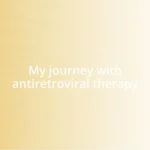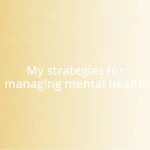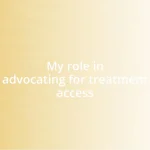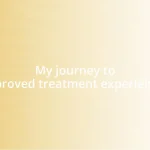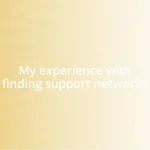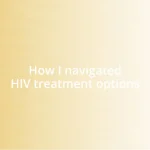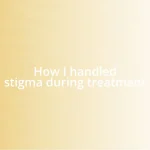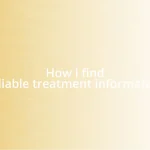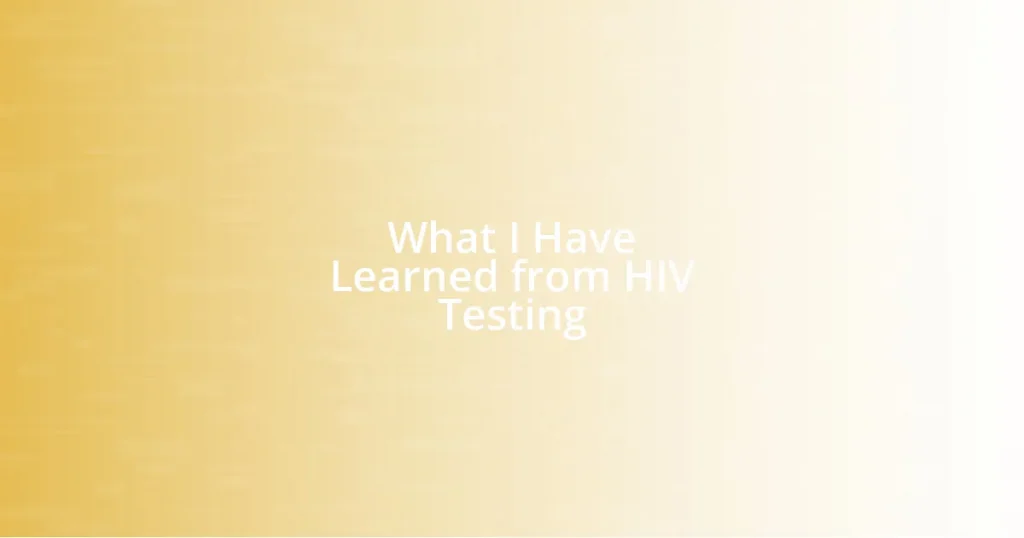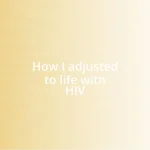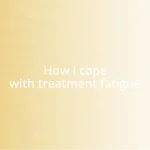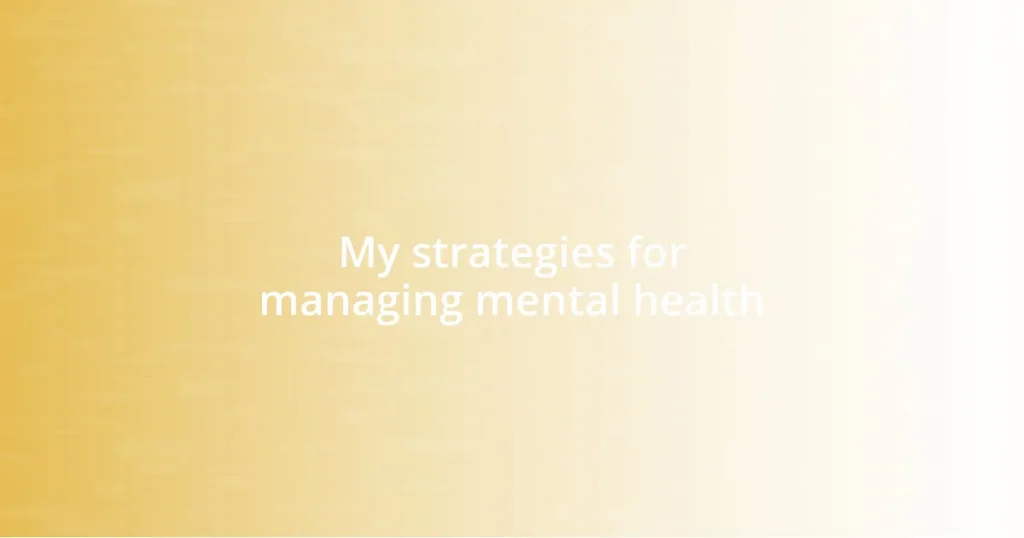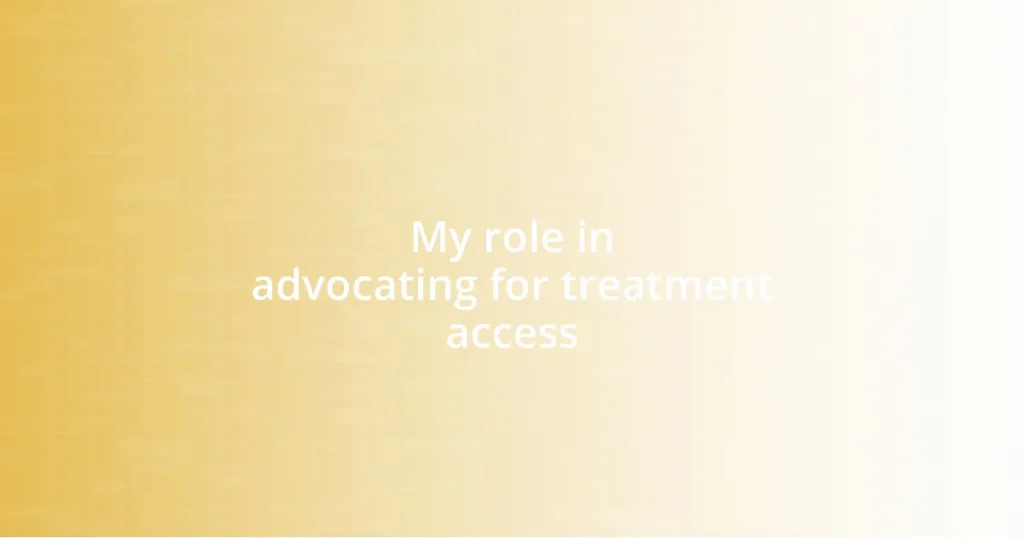Key takeaways:
- HIV testing empowers individuals by providing knowledge about their health status, enabling early treatment and fostering a positive outlook.
- Preparing for an HIV test involves research, gathering necessary documentation, and seeking support to alleviate anxiety.
- A positive or negative test result is a pivotal moment; each carries implications for health, lifestyle choices, and community advocacy.
- Addressing misconceptions about HIV testing is crucial for promoting awareness and encouraging consistent testing among all individuals.
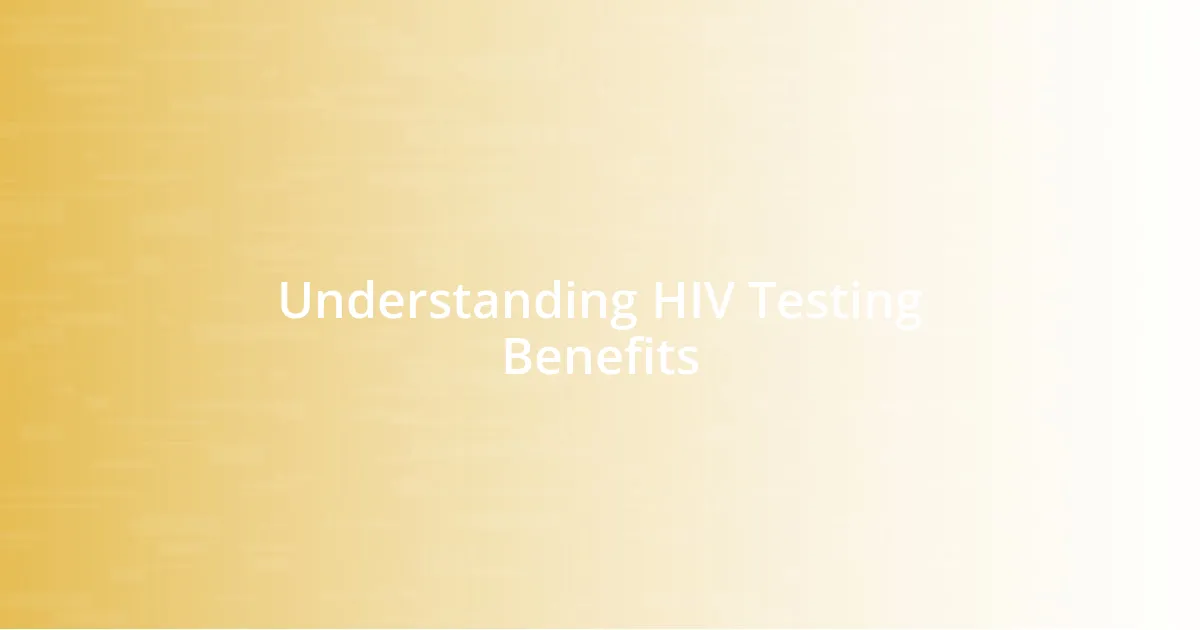
Understanding HIV Testing Benefits
HIV testing brings a wealth of benefits that can significantly impact one’s life. I remember the relief I felt after getting tested; it was like lifting a heavy weight off my shoulders. Why wait in uncertainty when knowing your status empowers you to make informed decisions about your health and well-being?
One major benefit of getting tested is the ability to take control of your health. Imagine discovering you are positive—having that knowledge means you can access treatment early. I’ve seen friends who took that step, and it transformed their outlook; they went from fear and anxiety to feeling empowered and optimistic about their future.
Moreover, testing helps reduce stigma surrounding HIV. I’ve often reflected on how open discussions about testing can change perceptions—when we know our status, we can talk about it candidly, helping to educate others. Isn’t it incredible that by simply getting tested, we can also be part of a larger movement towards awareness and acceptance?
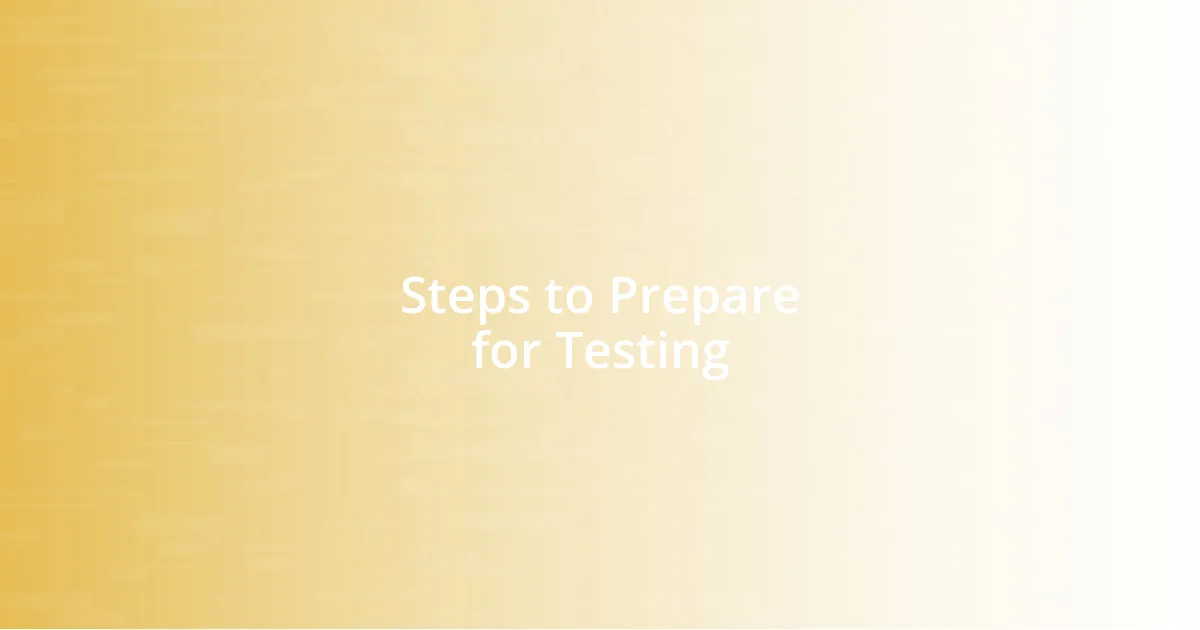
Steps to Prepare for Testing
Preparing for an HIV test involves more than just showing up; it requires a bit of mental and logistical groundwork. I recall the jittery feeling I had while waiting for my appointment, which was alleviated once I took some practical steps to prep. It’s about creating an atmosphere of reassurance for yourself.
Here’s a quick checklist to ensure you’re ready for your testing:
- Research Local Testing Options: Look into nearby clinics or community centers that offer testing. Know their hours and if you need an appointment.
- Gather Documentation: Check if you need to show any identification or insurance. Having everything ready can help ease any anxieties.
- Consider Timing: Plan your test for a time when you can process the results afterward, especially if you’re feeling nervous.
- Talk it Out: Share your thoughts with a trusted friend or counselor, if you can. Their support can provide comfort and motivation.
- Stay Informed: Brush up on what the testing process entails so there are no surprises; knowledge can be empowering.
I also remember bringing a little notepad with me to jot down any questions that came to mind beforehand. It was surprising how much clarity that brought me, turning my anxiety into informed curiosity. Just approaching the test with a clear mind and open heart can make the whole experience much smoother.
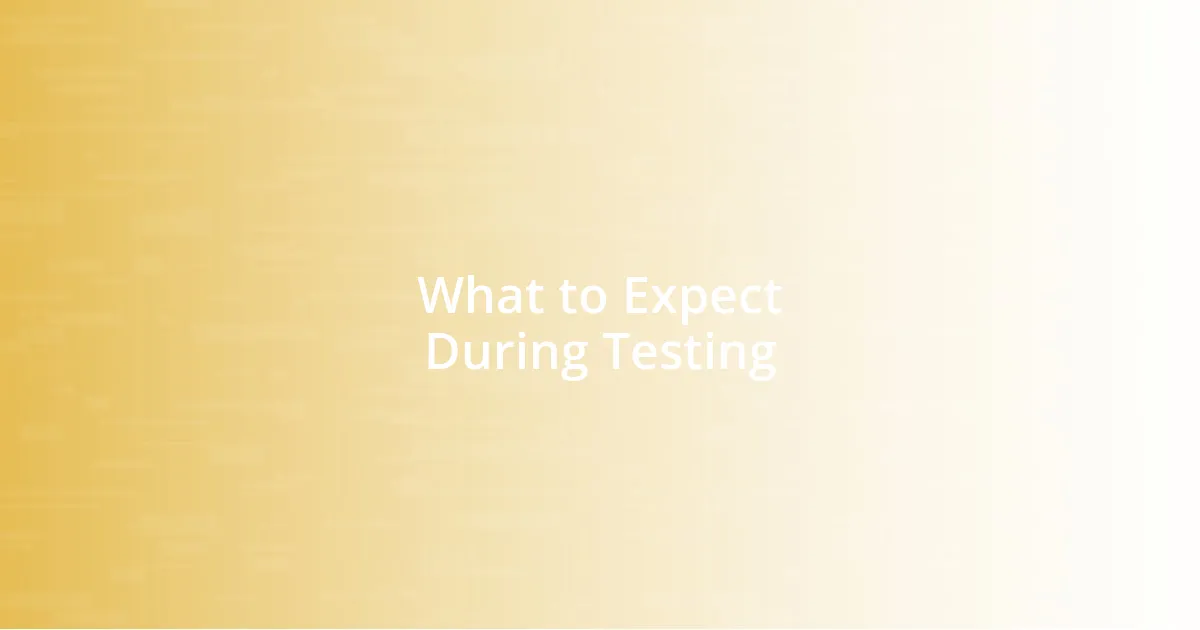
What to Expect During Testing
During the HIV testing process, it’s common to feel a whirlwind of emotions—anticipation, fear, or even relief. I vividly remember sitting in the waiting area, glancing around at the other individuals who were sharing this experience. The staff was friendly and welcoming, which helped to ease my nerves as I realized that I was not alone in this journey. It’s essential to remember that everyone there is seeking answers, and that shared goal can foster a sense of community.
The test itself is usually straightforward. Depending on the method, it can involve a blood draw or a quick oral swab. I recall the moment when the nurse explained each step so clearly that I felt empowered rather than anxious. I’d previously heard horror stories about long waits, but my experience was refreshingly quick. Yes, the waiting for the results can be nerve-wracking, but it’s vital to keep your focus on the bigger picture—understanding your health status and what comes next.
Once the results were ready, I was surprised by my own level of anxiety, despite preparing myself. Hearing the words, “You’re negative,” was a moment of pure joy. I felt a weight lift off my chest, and it motivated me to advocate for testing among my friends. I realized that sharing my experience could encourage others to face their own fears. The journey of HIV testing is not just about individual health; it can foster connection and support within communities.
| Testing Method | Experience |
|---|---|
| Blood Draw | Usually involves a needle, and while it may sound intimidating, most find it to be quick and manageable. |
| Oral Swab | A less invasive method that involves swabbing the gums. It tends to be quicker than a blood draw and can be done in a private setting. |
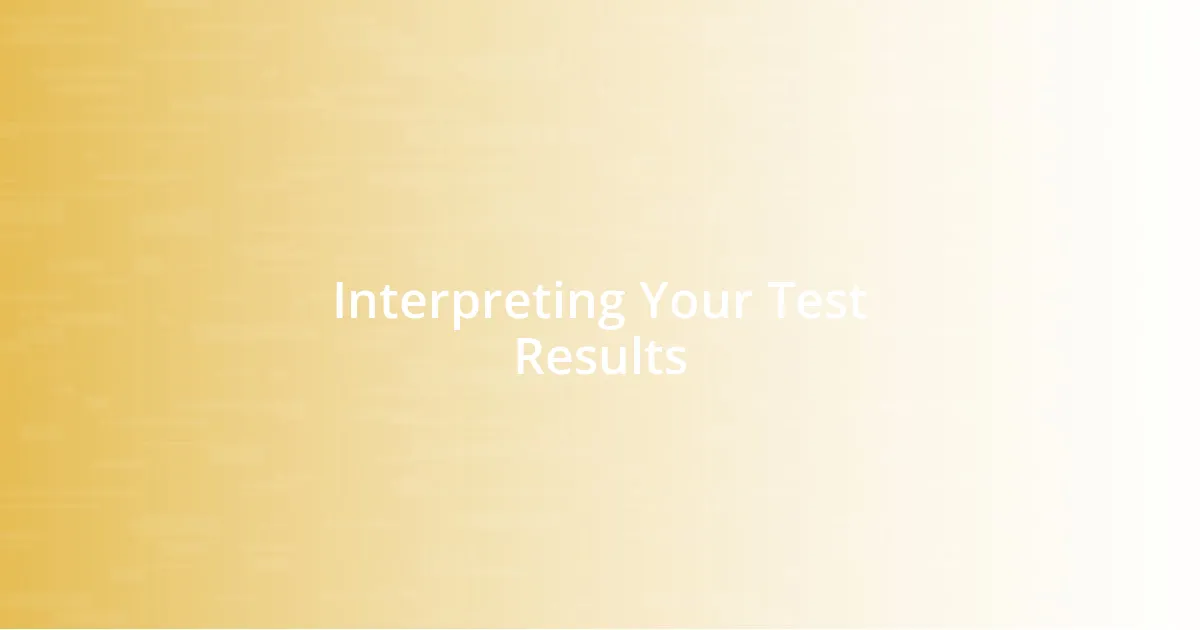
Interpreting Your Test Results
When you finally receive your test results, it feels like holding your breath for an eternity. I remember the moment I was handed my results—my heart raced as I unfolded the paper. Whether the outcome is positive or negative, interpreting those results involves understanding the implications for your health and well-being. It’s important to remind yourself that these results are just one part of your journey.
If you find yourself facing a positive result, I encourage you to take a deep breath. I know how overwhelming it can be to suddenly feel like the world has shifted beneath your feet. It’s crucial to understand what that result means for your health, but also for your future. Seeking a healthcare provider’s guidance can help you unpack the details, treatment options, and next steps, allowing you to transform fear into a proactive approach.
On the flip side, a negative result might seem straightforward, but it invites reflection, too. I was elated upon hearing my results but also realized it presented an opportunity to take charge of my health. What lifestyle changes could I embrace to stay negative? It sparked a curiosity and commitment within me to not only protect myself but also educate others about the importance of testing and prevention. It’s a journey of self-discovery and resilience that goes beyond the test itself.
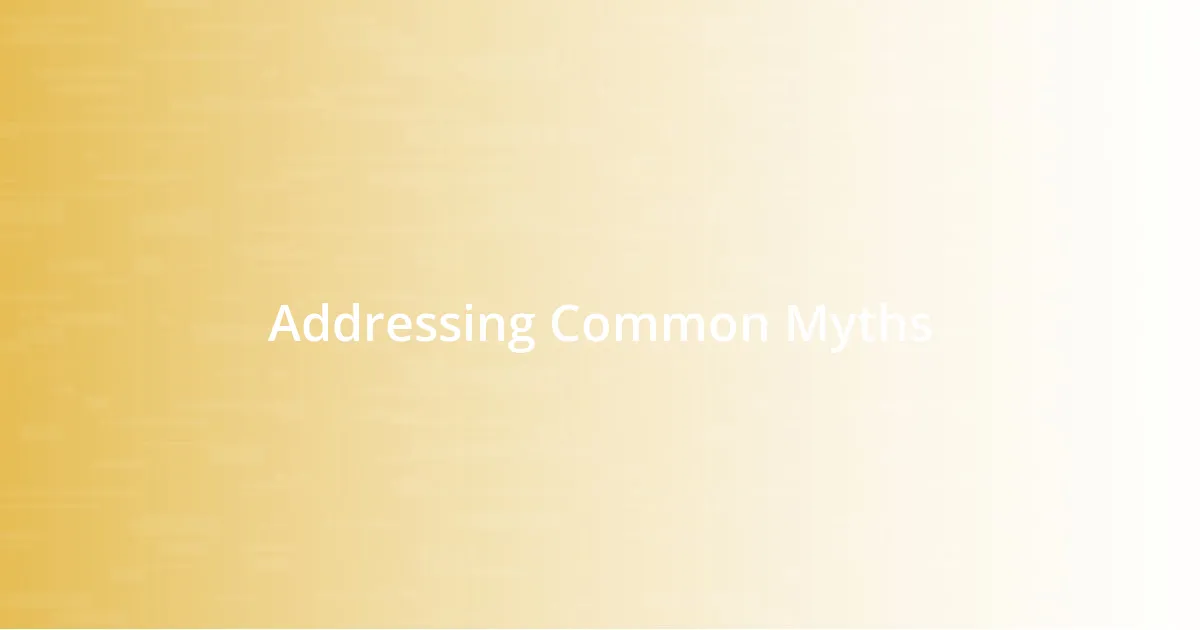
Addressing Common Myths
It’s fascinating how many misconceptions surround HIV testing. One myth I encountered was that only people who engage in risky behavior need to get tested. I used to think, “What does it matter if I’m cautious?” Then I learned that HIV doesn’t discriminate; anyone can be affected. This realization pushed me to advocate for testing, regardless of perceived risk.
Another common myth is the belief that a negative test result means you’re invincible. I fell into that trap, too, thinking I could let my guard down. But the reality is, it’s not just about one test; ongoing vigilance and understanding are paramount. I remember when a friend said, “I didn’t know I had to keep testing,” which highlighted how easily misconceptions can lead to complacency.
People often worry about the accuracy of tests, fearing a false negative. In my experience, I learned that while no test is infallible, the accuracy of these tests has come a long way. I still remember the nurse reassuring me, explaining the different methods and their reliability. That conversation not only eased my concerns but also educated me on the importance of follow-ups, proving that knowledge truly is power in the realm of health.
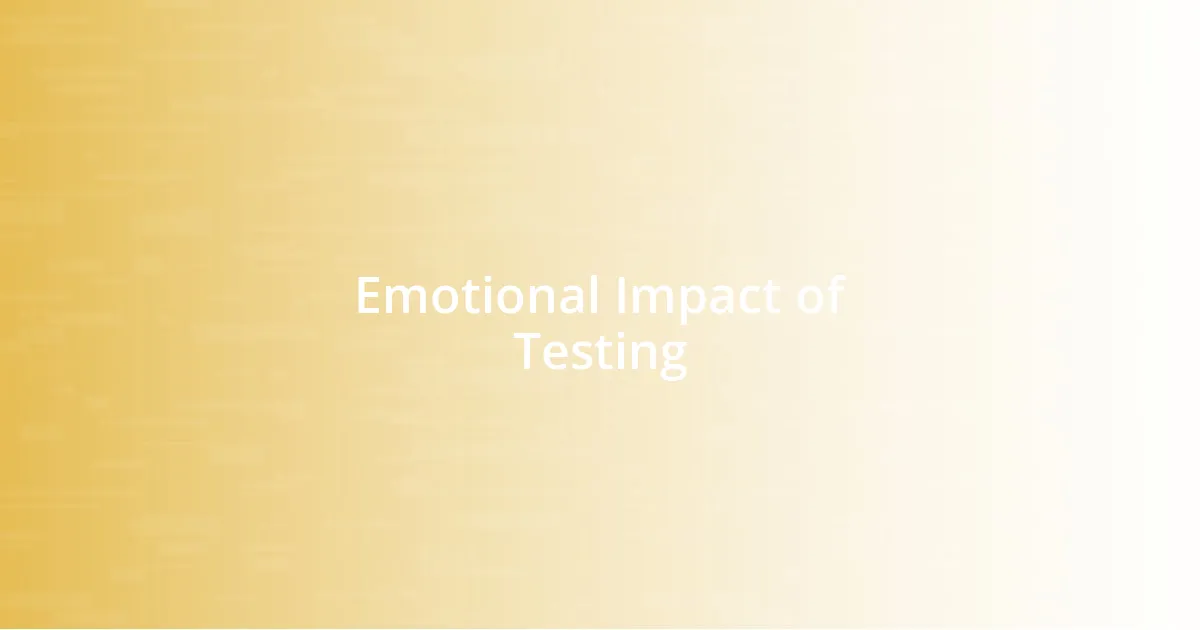
Emotional Impact of Testing
When I think about the emotional impact of HIV testing, the words “anxiety” and “relief” come to mind. I remember the sleepless night before my test, wrestling with “What if?” questions that plagued my thoughts. The emotional weight was heavy, but the moment I received my results, it felt as if a thick fog had finally lifted, leaving me with a strange mix of relief and uncertainty.
Navigating through my emotions post-testing revealed surprising layers. After a positive result, I felt completely lost; it was as if I had been thrust into a new reality that I wasn’t prepared for. Not only did I have to grapple with my health, but I also was flooded with fears about how others would perceive me. Have you ever experienced a moment that reshaped your identity? For me, it was that crossroads between fear and empowerment, forcing me to rethink what resilience really meant.
Even with a negative result, I sensed an undercurrent of vulnerability. It dawned on me that while I was celebrating, others might not share my fortune. That realization stirred something deep within me. How could I use my experience to support those around me? From that day forward, I embraced an openness about my journey, understanding that sharing my story was, in itself, a form of healing and connection.
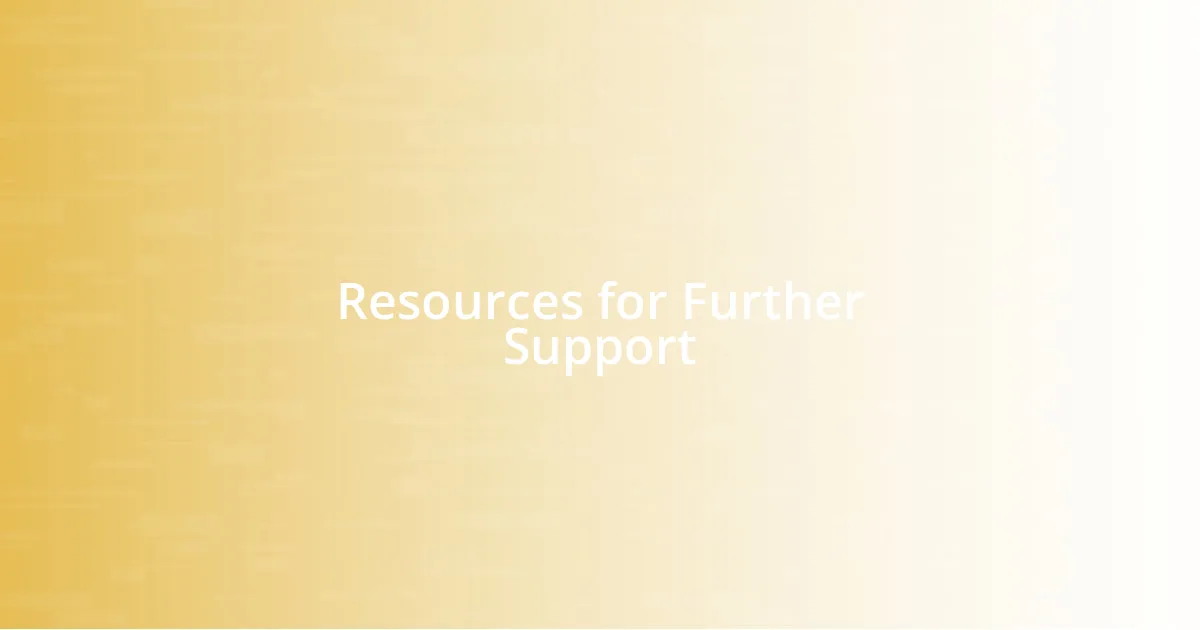
Resources for Further Support
Accessing reliable resources for support can be a game-changer in your journey after HIV testing. I’ve found organizations like the American Academy of HIV Medicine and the Center for Disease Control and Prevention (CDC) incredibly helpful. Their websites are packed with information and can guide you on what steps to take next, whether you need medical advice or emotional support.
One resource I stumbled upon during my exploration was local support groups. At first, I was hesitant to join; the thought of sharing my experiences felt daunting. But when I did take that leap, I realized how powerful it was to connect with others facing similar challenges. These meetings provided not just a safe space to talk but also a wealth of shared knowledge that helped me understand my situation better. Have you ever had the experience of feeling lighter just by voicing your fears?
Additionally, don’t overlook mental health resources. Professional therapy or counseling can be a vital support system, especially in sorting through complex feelings surrounding testing. I remember the first time my therapist helped me address my anxieties, providing techniques that transformed my worldview. It was like having a flashlight in a dark tunnel, illuminating paths I hadn’t thought existed. Reaching out for support, whether from professionals or peers, can truly make a difference.
